Australian neo-Nazis exposed after Adelaide arrests
The arrests of alleged neo-Nazis after a rally in South Australia has revealed their identities to the public.
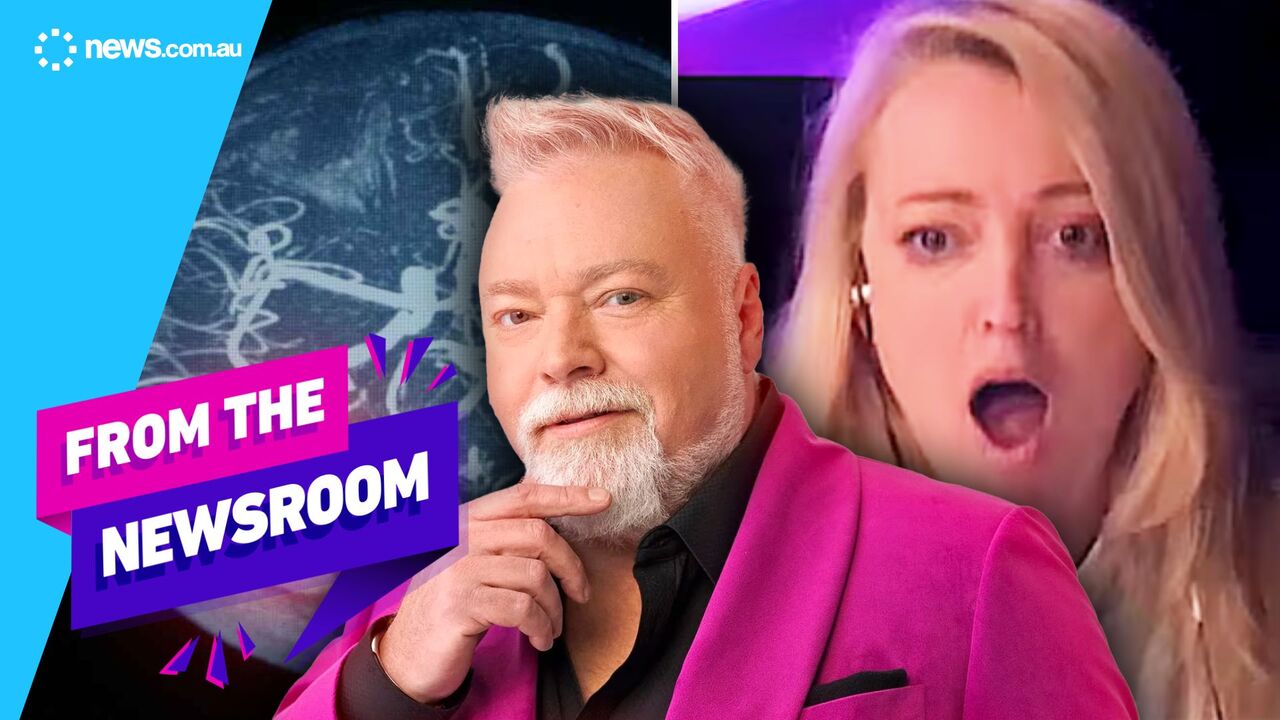
The exposure of more than a dozen neo-Nazis after a protest in Adelaide is an important step in holding them accountable for their views, an expert in political violence says.
A group of 15 men and one youth alleged to be members or associates of the National Socialist Network were arrested in the South Australian capital on January 26, after taking part in a “counter protest” at the city’s War Memorial.
Police laid a range of charges including displaying a Nazi symbol, carrying an item of disguise and loitering against group members who appeared in an Adelaide court last week.
Court documents show the men live around the country, with some having travelled from Perth, Sydney, Melbourne and regional Queensland.
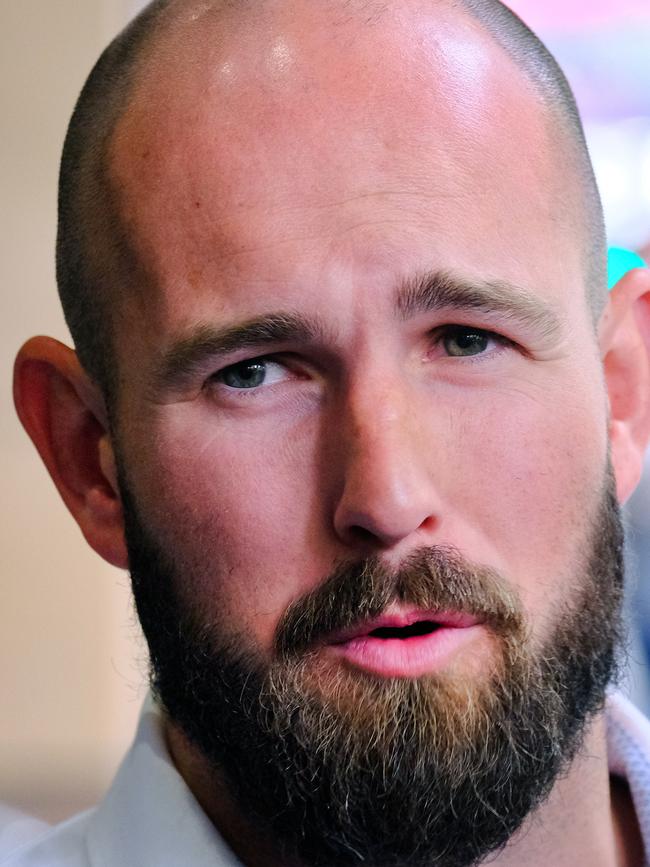
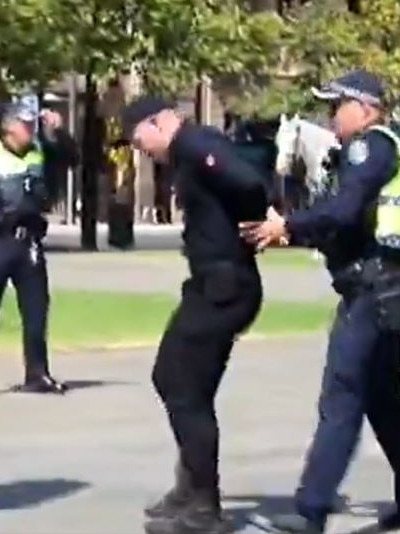
They included Thomas Sewell, the Victorian-based leader of the NSN, who has railed against “corrupt police” and an “anti-white government” in an online fundraiser which he hopes will allow him to “transition into a full-time role”.
In court Mr Sewell declared he had been the victim of “political prosecution” by South Australia Police.
Josh Roose, an expert in political violence at Deakin University, said the public spectacle created in Adelaide was not necessarily evidence of a growing neo-Nazi movement.
“Effectively what we have is a very small, very active group of committed Nazis employing tactics designed to maximise their public profile,” he told news.com.au.
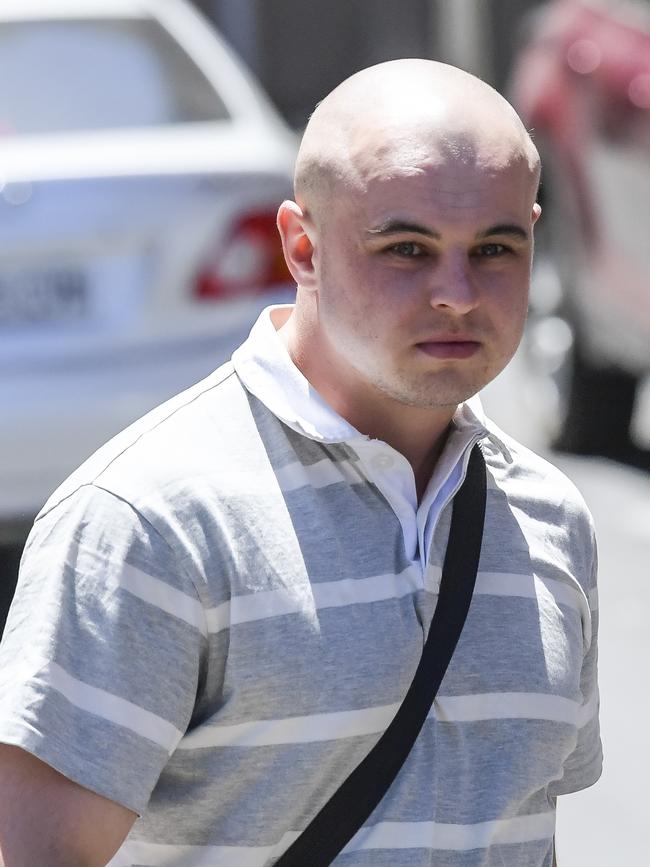
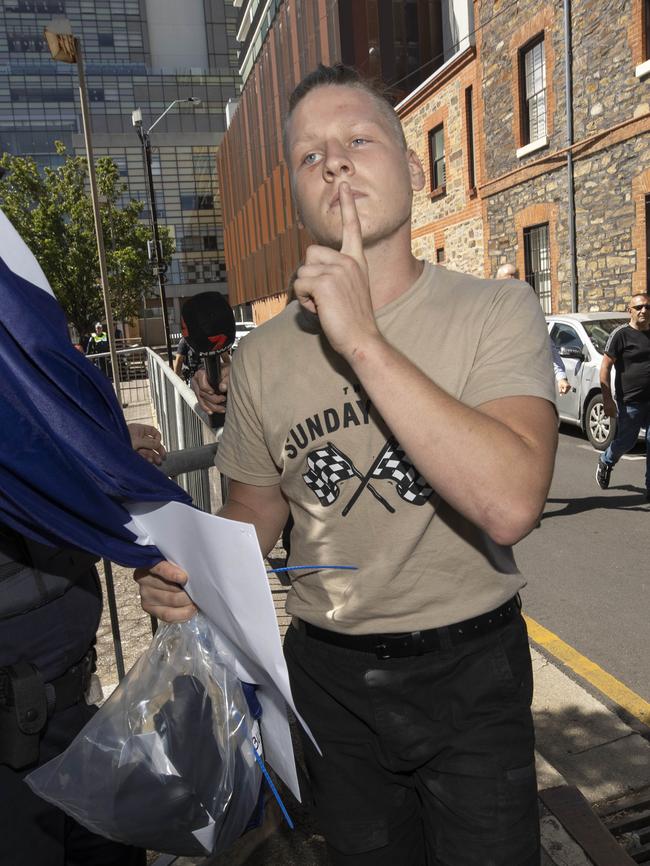
“So they pop up in unexpected locations, march through the streets in black, knowing that will not only get media coverage, but will be shared widely on social media.”
He said groups like the NSN exploited controversy and attempted to “portray themselves as representing the interests of white Australia”.
The arrests last weekend came after a journalist at the Adelaide Advertiser newspaper managed to infiltrate a local arm of the NSN.
The reporter spent several months embedding himself in the group, revealing some of their extreme beliefs including that white people faced dying out.
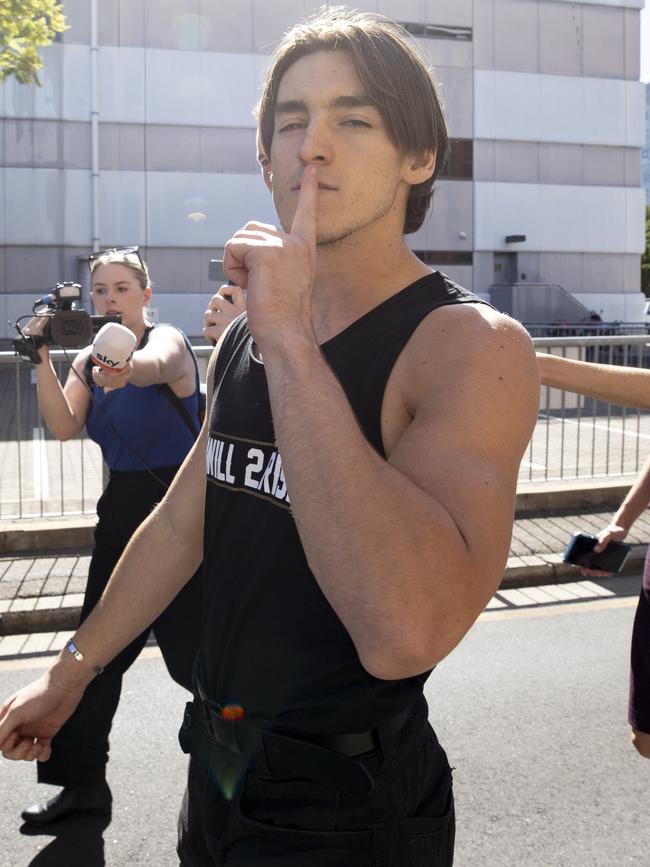
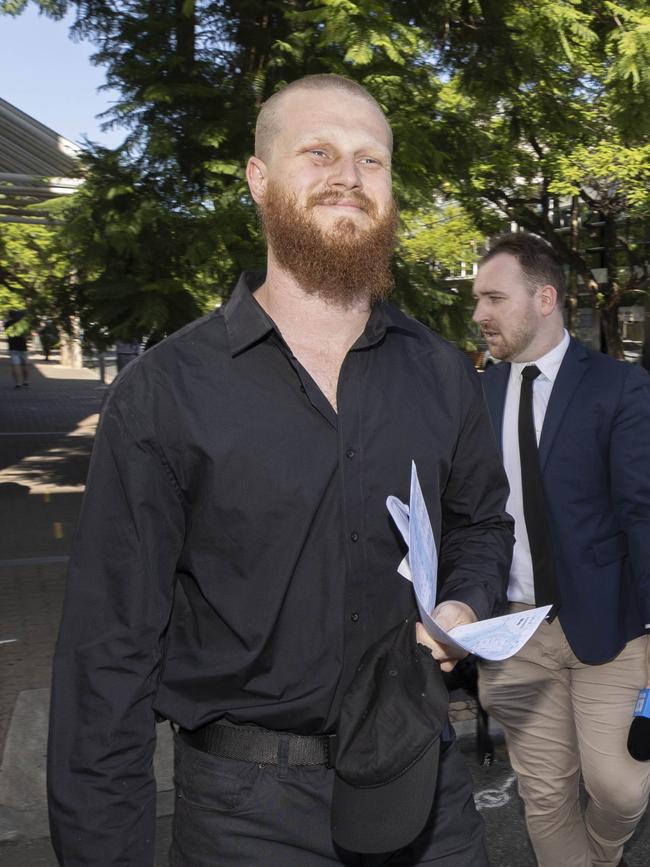
Mr Roose said such groups were often vigilant about being infiltrated but this latest exposure “demonstrates that they’re not necessarily attracting the best and brightest”.
The academic said reporting of the arrests and court appearances of the NSN members in Adelaide last week was important in shining a light on their true identities,
“They are seeking that media profile and if they’re seeking it, well it’s time to act,” he said.
“It’s time to go after them and hit them where it hurts.
“Which is A their privacy – they don’t get to hide behind masks online – B their hip pocket and C their freedom if they break the law.”
Prime Minister Anthony Albanese last Monday slammed the actions of the NSN as “hateful” and commended the response of South Australia Police.
“They were horrific scenes yesterday, to have people openly identifying as neo-Nazis and fascists, white supremacists marching through our streets,” he said.
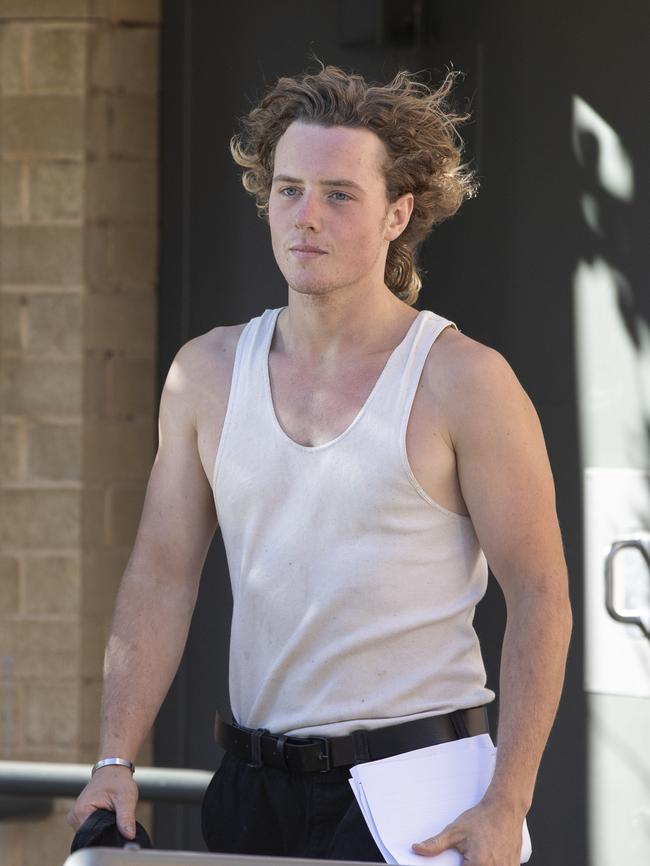
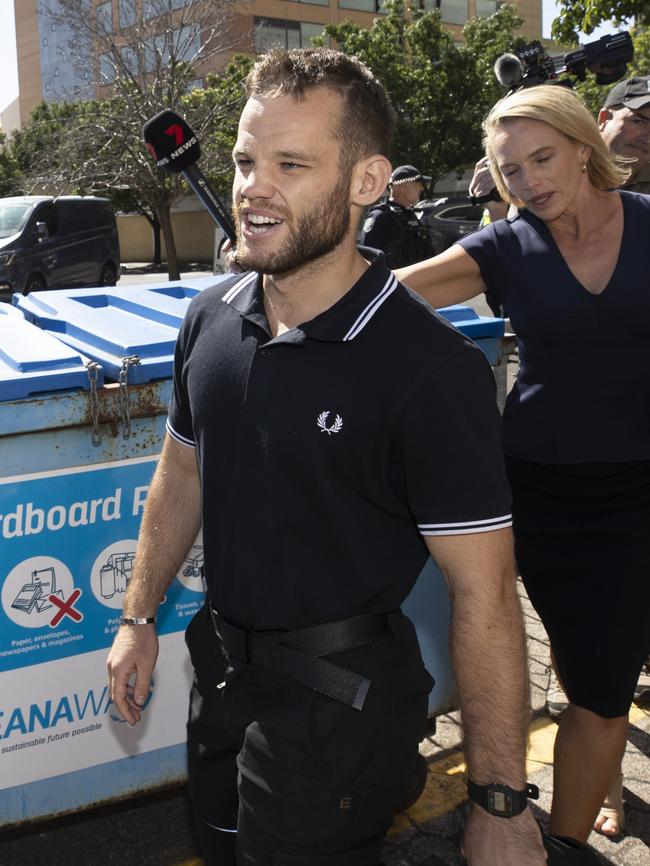
In a separate crackdown on white supremacist cells, Foreign Minister Penny Wong announced on Monday the federal government had imposed financial sanctions on the terror network Terrorgram.
The platform hosted on messaging app Telegram promotes white supremacy and racially-motivated violence, and has been designated as a terrorist organisation in the US and UK.
Using or dealing with the assets of Terrorgram is now a criminal offence in Australia and carries penalties of up to 10 years’ imprisonment and/or heavy fines.
“There is no place in Australia for anti-semitism, hatred or violence,” Ms Wong said in a statement.
The move follows rising levels of anti-semitic attacks in Australian cities, with police in NSW investigating a potential terror plot after the discovery of a caravan laden with explosives in Sydney’s outskirts.
News.com.au does not suggest anyone in the NSN was involved.
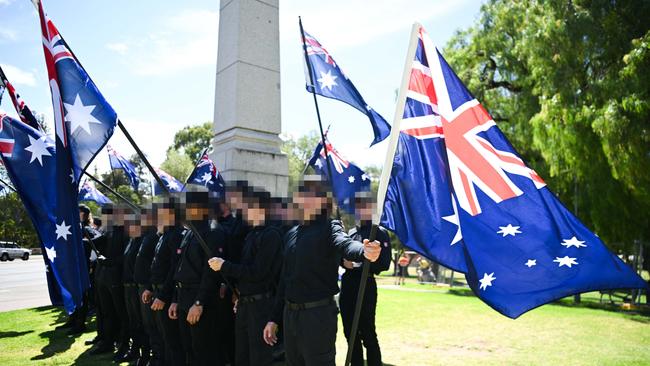
Mr Roose said the re-platforming of accounts previously banned for hate speech and other issues on X, following Elon Musk’s purchase of the site, had allowed Australian neo-Nazis to regain some online momentum.
“A year ago, they didn’t have a presence, they’d been banned,” he said of the movement generally.
More Coverage
“So they’re back and they’re seeking to exploit that through sharing videos of their marches, seeking to build their movements or engaging with one another. Representing themselves as victims of police forces, of politicians of wider society.
“And then seeking, on the one hand, to bring people in through that sense of victimhood.
“But on the other, to aggressively assert their desire for mass deportations in a white Australia, which is obviously not only deeply racist, but crosses all sorts of legal thresholds for hate speech and violent extremism.”



